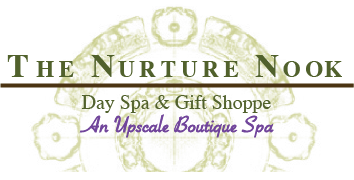How Healthy Are You?

What does it mean to be healthy? Is it how fit, strong, muscular or “in shape” you are? Is it defined by how much you exercise in a day? Does it depend on what foods you eat? Does it have anything to do with your spirituality or whether or not you go to church? Is it a reflection of how you speak or what you think? Could it perhaps be related to who your friends are, or what you do socially? Might real health possibly be a balance, or a blending, of all of these things?
It is becoming clearer that real health includes not just the absence of physical disease, but involves healthy habits, thoughts, choices, coping tools, and peaceful ways of relating to our environment and to those around us. If any one of these is out of balance there is a restlessness that occupies our bodies and minds, and we don’t feel content until these get put into place.
“To ensure good health: eat lightly, breathe deeply, live moderately, cultivate cheerfulness and maintain an interest in life.” — William Londen
You can go to the gym and work out every day, but if you can’t get along with others or have no friends you may be out of balance in some areas. Also, if you go to church every week or even several days a week, but you eat poorly and don’t move your body, you will be out of balance.
“Prevention is better than cure.” — Desiderius Erasmus
I once wrote an article about happiness being “something to do, someone to love and something to look forward to.” Those three elements are essential for feeling more solid or grounded in your life. In addition to that I would add caring for the vessel that determines your functionality. When you are not healthy in body, it can affect how you look at life and can sometimes feel defeating. That’s when you will rely on your other elements to get you through the rough patches or help you see your situation differently. If you aren’t cultivating a healthy mentality, you leave yourself open to negativity and self-sabotaging thoughts and actions.
“Health is the greatest gift, contentment the greatest wealth, faithfulness the best relationship.”
— Buddha
Integration of physical, social, mental, spiritual and emotional attributes is necessary to feel a real functional balance in life. Most of the time it is easier to prevent issues than it is to fix them. We tend not to focus on these elements as useful tools to more abundant living. We take our current health for granted. We eat what we want even if it makes us feel sluggish or bloated, or leads to some other negative outcome. Many people don’t realize what a good, healthy condition of body and mind is because we are used to making do with what we have. We’ve managed to work, play and interact as we are, so much so that we can’t conceive what it would feel like to have a healthier body, or how it would feel to be less emotional and have a more balanced, stress-free state of mind. When we make changes in our diet or exercise routines, we begin to realize how much more energy we can have. Conversely, if something happens and we become ill or lose the ability to do something physically, we see how much we have taken for granted. Until we lose something valuable we can’t fully appreciate its worth.
“Time and health are two precious assets we don’t recognize and appreciate until we don’t have them.”
— Denis Waitley
Being intentional each day toward the mentioned tools for balanced living is necessary if you are to fully integrate each of them so they create the best balance of time, health, and living at a peak level.
There’s been a lifestyle challenge going around called 75 Hard. It has 5 simple rules:
1. Choose a diet and follow it. (No cheat days and no alcohol)
2. Complete two 45-minute workouts each day (one has to be outside)
3. Drink a gallon of water every day
4. Read 10 pages of nonfiction (in the personal development category)
5. Take progress pictures
If you fail anything, you must start over. I love how this challenge affects your physical and mental discipline, expands your mind and increases sharing for social engagement. It doesn’t have a spiritual component, but I like how it has simple yet firm rules to follow. It’s a suggestion for a place to start if you are unsure of what kind of changes to make to move forward. There are lots of opportunities “out there” to get a guideline to lead to a game plan for being a healthier you! Use one as a springboard to finding a pathway to being a happier you, too.
